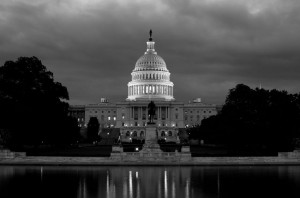Philanthropy and the GOP Tax Bill
 Photo by orhancam / 123RF
Photo by orhancam / 123RF Conservatives have long expressed their desire to make the government smaller and let the private and nonprofit sectors take on more responsibility for caring for people in need. Ronald Reagan’s administration, for example, encouraged nonprofits to “pick up the slack” for cuts in government programs. His successor, George H. W. Bush, famously praised the “thousand points of light” that charities shone on our nation.
The tax bill recently passed by the House of Representatives, currently under consideration by the Senate and championed by the Trump administration, moves in a different direction. The Guardian called it “the most sweeping attack on charitable giving and the nonprofit sector in memory.” It not only slashes government spending on a host of social programs while reducing taxes on the rich—it also discourages people from giving to secular nonprofits while increasing some incentives for giving to religious charities.
The House tax bill and the slightly different version currently being debated by the Senate (possibly up for a vote in the next day or so) would reduce charitable giving by more than $13 billion, according to The Chronicle of Philanthropy. This is largely due to a provision in the bill that doubles the standard deduction. The provision would reduce the number of people who can itemize deductions—the people who receive a tax benefit for their charitable donations—from 30 percent to 5 percent. In other words, with passage of this provision, only the very wealthy would continue to receive a tax incentive to support nonprofits, while everyone else would lose the benefits they currently enjoy. According to the Guardian, “31 million taxpayers would no longer be incentivized to make charitable deductions, gutting a tax break that has helped spur giving for 100 years.”
The Senate bill does differ in some respects from the House bill, but both contain the doubling of the standard deduction. Nonprofit leaders, including organizations like Independent Sector and the National Council of Nonprofits, have called for the creation of a “universal deduction” which would allow all taxpayers to deduct charitable donations, whether or not they itemize. Neither chamber of Congress included the universal deduction in their bills, however. Dan Cardinali, who heads Independent Sector said, “It just continues to send a powerful signal that the House and the Senate are privileging the wealthiest in America and really disempowering 95 percent of Americans.”
The possible crisis for nonprofits is worsened when you take into account changes in the estate tax in both House and Senate bills which would vastly reduce the amount wealthy people can allot to charities in their wills. Such donations accounted for 8 percent of charitable contributions in 2016. These changes would benefit only the wealthiest 0.2 percent of Americans, yet they would remove up to $270 billion in donations over a decade, according to Mark Rosenman, an activist for the nonprofit sector.
And then there’s the possible dismantling of the Johnson Amendment, which will encourage people interested in hiding political donations to contribute to houses of worship. Since 1964 the Johnson Amendment has prevented nonprofit organizations from endorsing candidates and engaging in partisan political speech. Although the bill under Senate consideration does not contain changes to the Johnson Amendment, the bill passed by the House would reverse the provision, allowing charities, churches, and foundations to engage in politics. This is especially problematic for nontheists because churches, unlike other nonprofits, are not required to make donor names public. The lack of the transparency that is required of other nonprofits means that donations made to houses of worship would be both tax-deductible and completely anonymous, creating a new pool of dark money for political campaigns.
During his campaign for president, Donald Trump trumpeted his own philanthropic giving. These claims of personal charity have been widely debunked (see here, here, and here, for a few examples). As president, Trump has continued to present the façade of supporting charity. On #GivingTuesday, a national campaign to encourage people to donate to charities, Trump singled out religious charities in his official statement: “This #GivingTuesday, I thank those who have contributed to charitable organizations, including our houses of worship, and ask that we continue to come together to give and help others in need” (emphasis mine).
But the tax bills crafted by the Republican Congress and championed by the president render these pronouncements hollow. If the Senate passes this bill, charities and nonprofits will suffer. Even more so will the people they serve.
